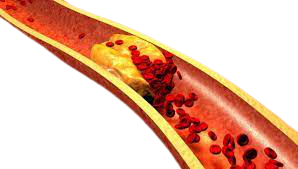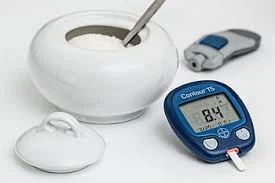In this article the topic, "How Does Diabetes Affect The Kidneys" will be covered and we are going to discuss kidney disease and diabetic nephropathy, we call it.
So, we'll discuss how and why it happens, and the symptoms of diabetic kidney disease, and we're going to touch base on
- The stages of Kidney Disease
- Risk factors of Kidney Disease
- How to prevent Kidney Disease
- How to not end up with Dialysis
and we're gonna discuss also dietary measures at the end.
So, it's not a very super short article, but it's not very exhausting either. So, if you really want to get to the bottom of this issue you better stick around until the end of this full of health info page, and you will be a pro.
To understand kidney disease, let's get started and keep in mind that, the health info you are about to read on this page is obtained from a highly qualified Doctor who is an endocrinologist who has a great passion for helping people with diabetes all around the world.
Let’s read that Doctor’s own words stated by himself on this special topic "How Does Diabetes Affect The Kidneys". As you may know, diabetes is the leading cause of kidney disease, at least in the USA.
About one-third of patients with diabetes, currently have kidney disease, whether they know it or not. More commonly, my relatively new patients have little to no idea until I tell them that they have kidney disease.
They get upset because they just didn't know or didn't hear
that from their GP before and I'm the bad guy just breaking the news.
The unawareness is so common among the people that even with stage kidney disease, they have no idea.
Less than 40% of these individuals are aware of their disease.
I want my patients to know everything about what is going on. Anyhow, diabetic nephropathy shakes your kidney's capability to perform the usual routine job of eradicating the waste produces, and additional liquid from your body.
As a result, you start feeling
sluggish, tired, and swollen when those substances are not removed.
The best way to prevent or delay diabetic nephropathy is by maintaining blood sugar, as close to normal as possible, and treating your cholesterol, obesity, and high blood pressure. We'll talk more about that later on in some other article.
Over many
years, though, diabetes slowly damages your kidneys. Acting early may prevent
or slow the disease progression and reduce the chance of ending up with
dialysis.
When your kidney disease progresses to total kidney failure, we call that end-stage kidney disease.
At that point, the
patient will need dialysis permanently. The whole purpose of this
article is that you guys, hopefully, will not need to go to dialysis, after
understanding this disease process and taking the appropriate actions.
But thousands of people with end-stage kidney disease from diabetes, are on dialysis right now in the US.
So, do not wait for your doctor to do something, like I said, half the time your doctor may not even tell you that you have kidney disease until you have stage 4 kidney disease.
Don't ask me why. That brings us to the stages of kidney disease, so let's talk about that.
So, most of the time,
doctors will detect a protein in the urine, as the first sign of chronic kidney
disease, okay.
So, that's like even before any stage. At that stage, your GFR, which is your Glomerular Filtration Rate, will possibly be normal or even higher than expected.
So, do not assume that your
kidneys are completely normal, because your GFR is not highlighted in red on
your report. So, don't try to doctor yourself.
So, when your albumin in the urine is
between 30 to 300 milligrams per gram, you have something called
Microalbuminuria, and if the number goes above 300, then we call that
macroalbuminuria.
Should this happen, the worsening of chronic kidney disease becomes faster.
So, normal kidney function, looking at the
GFR, is considered to be above 90. When the GFR goes between 60 and 90, this is
called stage 2 kidney disease.
When your GFR goes between 30 or goes below that 60 range, between 60 and 30, that's stage 3.
So, when the GFR is
between 15 to 30, that is stage 4, and the GFR below 15 is stage 5 kidney
disease.
So, most patients with GFR below 15 will need dialysis, unfortunately, and the stage 5 and lower GFR is life-threatening unless you go to dialysis.
At that stage, you basically are left with dialysis as the only option. So, what do your kidneys really do and what happens when they fail?
Well, the main job of kidneys is to filter wastes and extra water out of your blood, and it makes urine.
Your kidneys also help control the blood pressure, and make hormones such as aldosterone, adrenaline, and renin, to help regulate the blood pressure.
When your kidneys are damaged, they cannot filter blood like they should, which can cause wastes to build up in your body.
These toxic substances that accumulate in your body can also cause
other health problems such as heart failure or even cardiovascular disease,
which includes heart attacks or strokes, God forbid.
How Does Diabetes Affect The Kidneys
So, let's review how the damage to kidneys happens with diabetes. Well, first of all, high blood sugars in your bloodstream cause your blood cells to become sticky.
They tend to stick to one another and along the sides of the blood vessels. The blood vessels then become inflamed, which attracts even more inflammation and inflammatory chemicals to the area.
This makes the inflammation even worse because it becomes a vicious
cycle.
Remember how I said insulin resistance was also a major culprit in causing the problem, it's because of fatty acids.
This means that you are having these blood vessel changes even before you have real diabetes.
So, when fatty acids and glucose attach to the endothelial wall on your kidney arterioles, which are the small arteries within the kidneys, they become larger, and the blood flow increases to the kidney.
The whole filtering system is affected. This lasts only a short while before the kidneys begin to burn out.
That is when you start having chronic kidney disease because healthy cells in the kidney die of pre-early diabetic kidney disease.
The blood flow, unfortunately, starts to drop and we measure the blood flow through the kidneys, using what?
We just learned: GFR, the glomerular filtration rate. You can find your GFR on your lab test, where the kidney testing is reported, where the creatinine and Burns are, you know, basically a CMP or BMP.
There will often be two values: one for African-Americans and one
for all others. Find the one that fits you, and look it up on that stage. See
where you are fitting, as we discussed before.
Another important thing that happens in diabetic kidney disease is that glucose absorption increases. That means that even if the glucose is filtered in the urine, it gets reabsorbed easily back into your bloodstream.
Well, this causes the blood sugar to remain high, and at
this point, the kidney's ability to excrete the excess sugar is also gone.
So, what are the other names for
diabetic kidney disease, you're going to ask? Well, you can call it a diabetic
kidney disease as DKD in short, or CKD, or you can call this "kidney
disease of diabetes" or "diabetic nephropathy".
So, now, you all know all the terms about that. Let's talk about whether you are at risk for kidney failure.
Well, if your age is increasing, which happens to everybody, that's a risk factor. And if you're older than maybe around forty to forty-five, that's definitely a risk factor, so, the longer you have diabetes and other risk factors, the more chance is there to develop diabetic kidney disease.
Now, interestingly something that you cannot control, which is race and ethnicity, can be a risk factor.
So, if you're an African-American, Latino, or American Indian, you are at higher risk, unfortunately. Interestingly, chronic kidney disease due to diabetes is more common in women than men.
Now, diabetic kidney disease is also more common in people with a low Socioeconomic status. Unfortunately, people with low socioeconomic status, tend to see doctors less often.
Unfortunately,
they also tend to be less educated to prevent kidney disease.
Another one is obesity, which is a risk factor. It's been listed as an independent risk factor, even without diabetes.
So, diabetic patients, who are overweight, are definitely adding more risk for diabetic kidney disease, if they are morbidly obese. Just like obesity, smoking can also be a huge risk factor, independent of diabetes.
And when combined with diabetes, smoking can be super detrimental to your kidney function.
If you are suffering from diabetes moreover your blood sugars keep high for more than several years, it will certainly put a high burden on your kidneys.
Now, high blood pressure is also
extremely important in the progression of kidney disease, so, do not, please,
do not ignore your blood pressure and keep it under control.
The best blood pressure for kidneys is any blood pressure below 120 over 80. As in many diseases, genetic factors also contribute to the development of kidney disease, especially due to diabetes.
So, if your family members developed kidney disease or kidney failure due to
diabetes, you have to be extra careful.
So, acute kidney injury also is another
thing that happens sometimes on top of chronic kidney disease, which also
acutely lowers your kidney function, and it may not come back.
So, those people are generally dehydrated, and make sure that, understand that dehydration definitely can trigger acute over chronic kidney disease.
So if you're on drugs like Jardiance,
Farxiga, or Trulicity, you have to be a little extra careful so as not to get
dehydrated.
So, how can I tell if I have diabetic kidney disease?
What are the symptoms?
Most people with diabetic kidney disease do not really have symptoms, unless, you are in acute kidney failure, you will have very little to no urination.
But with chronic kidney disease, it does not
really give symptoms, until it's like late stages.
The only way that you know if you have diabetic kidney disease is to get your kidneys checked in a good clinic, where they always monitor kidney function regularly along with the A1C values and the cholesterol, etc.
How to manage, prevent, and treat diabetic disease?
Well,
Number one: Control Blood Sugars
Right. So, when it comes to controlling blood sugars, as an endocrinologist, I always aim for as low as reasonably achievable blood sugars.
It means that we
strive to keep the blood sugar as close to normal as possible, without causing
significantly low blood sugar, which, in other words, is hypoglycemia.
Keeping A1C less than 7 and if possible less than 6.5 is the ultimate goal for most younger patients.
For patients over
80 years of age, then for them, if they have too many problems, it may make it
more difficult to prevent low blood sugar. And in that case, A1C goals,
sometimes, are a little higher.
Remember, continuous glucose monitoring
systems, such as DexCom and Freestyle Libre are extremely helpful to prevent
low blood sugar, especially if you are already experiencing that. They also
help to control high blood sugars, because it gives you the data that you have
been looking for.
Number Two: Control Blood Pressure
Well, intensive blood pressure control is extremely important, in addition to your blood sugar control. Remember, the magic number is 130 over 80. Keep it at that or lower.
Blood pressure control only reduces kidney disease progression, which means not only does it reduce kidney progression, but also it reduces the death from cardiovascular diseases, such as stroke and heart attacks.
You should also know
that chronic kidney disease itself is a risk factor for heart attacks and strokes,
guys.
Also, remember most patients die from heart attacks and strokes even before they end up with dialysis, due to chronic kidney disease.
So, preventing heart disease and strokes is extremely
important. The most common agents we use for blood pressure and blood pressure
control in patients with diabetes are called ACE inhibitors or angiotensin
receptor blockers. So, talk to your doctor about that.
Number Three: Obesity
Obesity and diabetic disease are very important, the obesity alone is, a huge risk factor. So, try to do your best, try to keep your weight as low as possible.
Cholesterol. Now, reducing cholesterol levels, especially LDL, is extremely important. So, don't listen to those guys saying that, "oh LDL is good for you". That's total BS, okay?
Most people resist the idea of cholesterol medications based on what they hear or see on the internet or TV, please read from reliable resources, and watch people with credible credentials.
I have not yet met a credible endocrinologist or a
cardiologist who claims that the high LDL is okay for you. Nor did I read a
credible study showing that high LDL is okay either.
So I don't know where these people are getting their information from.
Here is a diet question:
Do I need to reduce protein in my diet, especially if I have chronic kidney disease?
Well, the role
of protein restriction is really unclear, unfortunately. But I would still
avoid excessive protein and try to stick to around 50 to 60 grams of protein
daily, which is the commonly recommended protein amount by most nephrologists
and organizations for kidney disease.
So, how to prevent, how often to monitor diabetic kidney disease?
Well, patients with chronic kidney disease, especially due to diabetes, should be seen by their doctors and have a follow-up every 3 to 6 months, preferably 3 months.
Now, the endocrinologist or diabetes specialist will review not only the labs, but also blood pressure control, and review the medications that may need to be changed if necessary.
In our diabetes center, we target the A1C, the blood pressure, the blood cholesterol control, all together in a holistic way.
This approach is the most effective
approach to reduce chronic kidney disease, not only to control blood sugar.
So, here's another question:
How soon will I go to dialysis when I have chronic kidney disease?
That's an extremely common question. Well, not all individuals have progressive loss of kidney function, that's the good news.
So, some studies show a high rate of progression, while the others report a relatively stable disease. And again most studies indicate that blood pressure cholesterol control makes or breaks it.
That also depends on the degree of chronic disease as well, and all the risk factors we just discussed. Patients who have good glucose control, good blood pressure control, and cholesterol control are very lucky because they typically stay stable.
Especially if they are on the right medications to
prevent kidney disease, the chances of progressing to dialysis are way lower.
So, guys, thank you for reading this health info article on the topic of "How Does Diabetes Affect The Kidneys" on health and fitness advise.com.
We hope you do not have kidney disease, and if you do we hope it just remains stable or even gets better.
So, if you like this article, share it, and we'll
see you in the new article. We hope you are enjoying this website so far,
and we hope you’ve also followed our page on Quora already.
HEALTH AND FITNESS ADVISE | HEALTH INFO
https://www.healthnfitnessadvise.com












